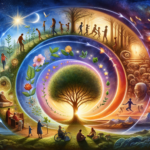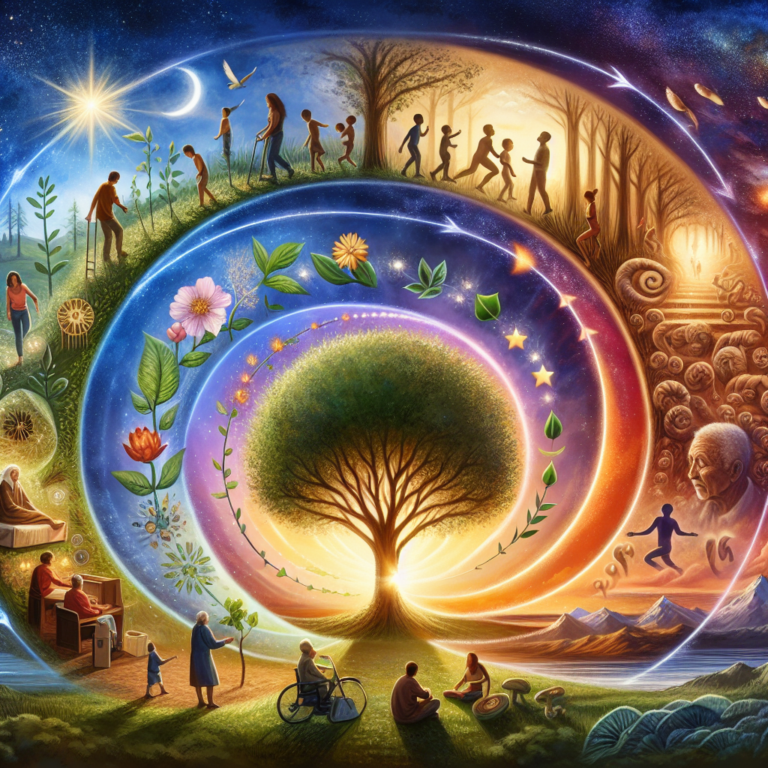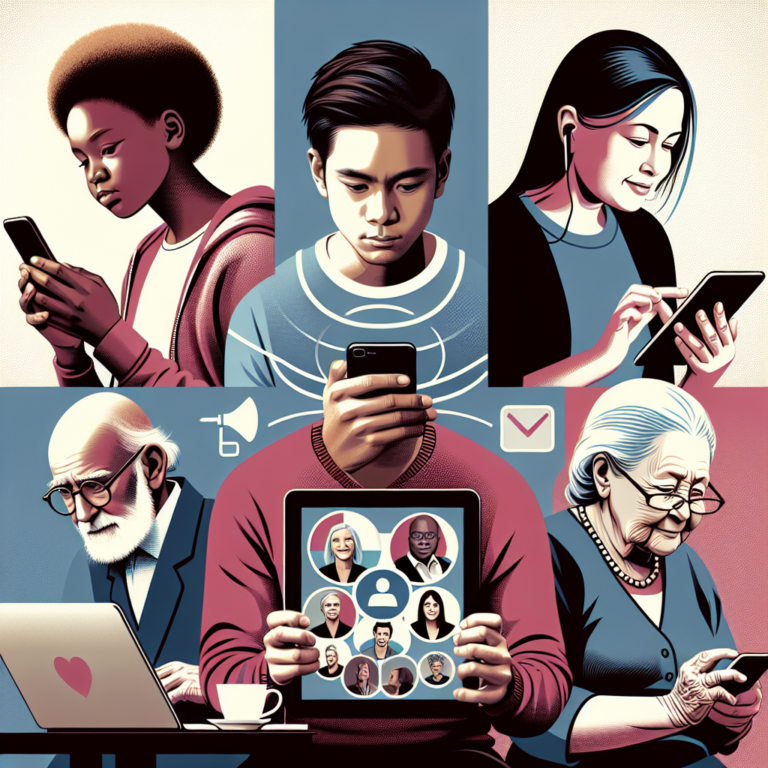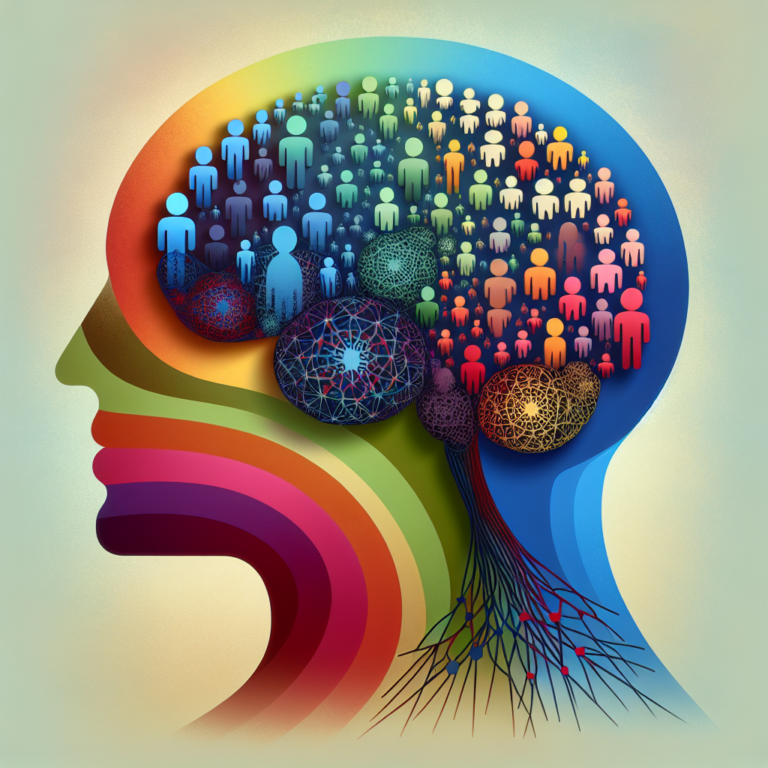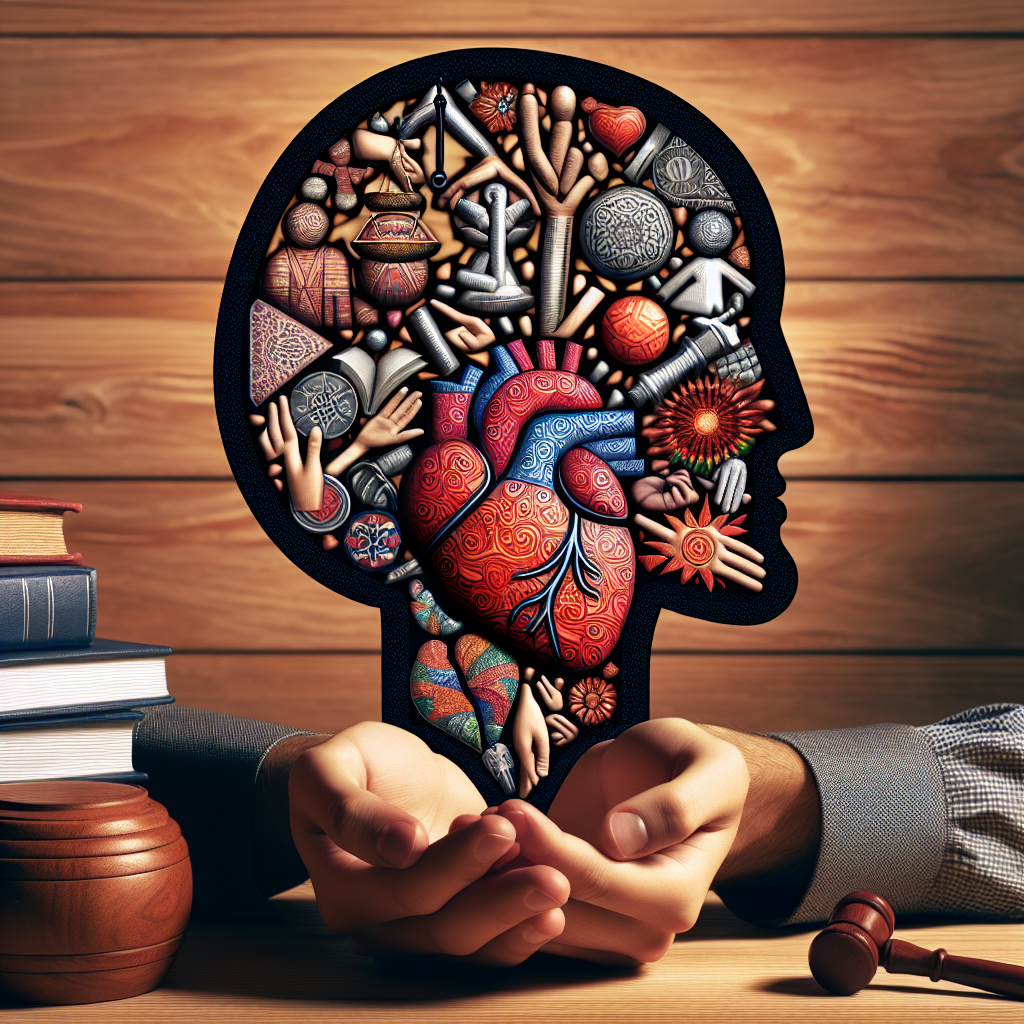
Introduction
Imagine a world without a moral compass guiding human interactions. Picture a society where actions are dictated solely by personal gain, devoid of ethical considerations or cultural influences. The intricate relationship between culture and morality is foundational to understanding how societal values shape moral development. This article delves deeply into this relationship, uncovering how societal norms and cultural frameworks inform ethical behaviors and convictions.
In an age where globalization creates diverse interactions across cultures, understanding the dynamics of culture and morality is more critical than ever. From individual behavior to institutional frameworks, the way societies define good and bad has far-reaching implications for personal development, social justice, and community well-being.
The Intersection of Culture and Morality
Understanding Culture
Culture encompasses the rich tapestry of beliefs, practices, languages, and artistic expressions that characterize a group of people. It provides the lens through which individuals interpret their surroundings and interact with others. Culture shapes everything, from cuisine to customs, and profoundly influences moral values.
The Nature of Morality
Morality refers to the principles governing right and wrong behavior. These principles can vary widely across different cultures and societies. Moral development, therefore, is the process by which individuals learn the values of their culture and start to navigate complex ethical situations. This developmental process is influenced by various factors, including family, religion, education, and media.
Case Study: Cross-Cultural Perspectives
To illustrate how culture affects moral development, consider the contrasting views on individual rights in Western and Eastern societies. In many Western cultures, individualism promotes personal autonomy and the belief that every person deserves rights and freedoms. Conversely, in collectivist societies—common in various Asian cultures—community well-being is prioritized over individual desires.
Analysis
This case study exemplifies how culture and morality intertwine, influencing individuals’ moral reasoning. While a Western individual might prioritize personal freedom in ethical dilemmas, an Eastern individual might consider collective harmony more significantly.
Influences on Moral Development
Family and Parenting Styles
Family is often the first cultural institution individuals encounter. Parenting styles can dramatically shape a child’s moral worldview. For example:
- Authoritative Parenting: Encourages open dialogue about morals, helping children understand ethical principles through discussion and reasoning.
- Authoritarian Parenting: May instill rigid moral codes without encouraging critical thinking, leading to a compliance-driven moral compass.
| Parenting Style | Characteristics | Influence on Morality |
|---|---|---|
| Authoritative | Open discussions, nurturance | Encourages independent moral thinking |
| Authoritarian | Strict rules, high expectations | Fosters compliance without questioning |
| Permissive | Lacks structure, unregulated freedom | Can lead to a lack of moral clarity |
Case Study: Parenting Across Cultures
A comparative study of American and Scandinavian parenting styles reveals stark differences in moral development approaches. American parents may focus on teaching independence and assertiveness, while Scandinavian parents often emphasize cooperation and community responsibility.
Analysis
These differing parental influences are prime examples of how culture and morality operate within the spheres of family life and child development. The outcomes are reflective of broader societal values: independence in one culture versus community reliance in another.
Education Systems
Education is another significant factor shaping moral development. Different educational systems prioritize various moral frameworks. For example, in countries like Finland, education emphasizes critical thinking and cooperation, fostering a communal sense of morality.
Case Study: Moral Education in Different Countries
A study comparing moral education curricula in Japan and Australia indicates that Japan integrates moral education within a broader subject framework, emphasizing social responsibility. Conversely, Australian educational approaches may focus more on individual rights and freedoms.
Analysis
By examining educational trends, we see concrete examples of how culture and morality inform students’ ethical development. Japanese students may be more inclined to consider the impact of their actions on the community, while Australian students might lean towards asserting their individual rights.
Institutional Influences
Religious Institutions
Religious beliefs often significantly impact moral values. Different religions offer distinct ethical frameworks, shaping adherents’ moral decision-making processes.
Case Study: Comparative Ethics in Religions
A comparison of ethics in Christianity, Islam, and Buddhism highlights how these faiths offer unique moral teachings. For instance, while Christianity emphasizes love and forgiveness, Islam focuses on justice and community responsibility.
Analysis
Religious frameworks are powerful influencers of culture and morality, shaping adherents’ moral frameworks. The interplay between religious teachings and cultural practices contributes to rich, diverse moral views worldwide.
Legal Systems
Legal institutions reflect societal values and enforce moral behavior through laws. However, the relationship between law and morality can be complex.
Case Study: Morality and Law
An examination of the legalization of same-sex marriage in various countries illustrates how shifts in societal views influence legal frameworks. In progressive societies, legal acceptance mirrors evolving moral beliefs, while more conservative cultures may resist such changes.
Analysis
The case of same-sex marriage serves as a prime example of how culture and morality evolve together, showing that legislation can be both a reflection and a catalyst for changing moral perspectives.
The Role of Media
The Impact of Digital Culture
In today’s digital age, media plays an instrumental role in shaping societal values and moral perspectives. Social media platforms can amplify cultural narratives, influencing public opinion and moral development.
Case Study: Social Media Movements
Social media’s role in movements like #MeToo demonstrates how virtual spaces can empower individuals to challenge societal norms and advocate for change. These platforms mobilize collective action and reshape moral landscapes.
Analysis
This case exemplifies how culture and morality intersect in the digital realm, influencing collective ethical standards and behaviors in the public sphere.
Challenges and Opportunities in Moral Development
The Moral Dilemma of Globalization
As globalization fosters cultural exchange, it creates both opportunities and challenges. Cultural relativism poses questions about universal moral principles. Should there be a global moral code, or should morality remain culturally specific?
Case Study: Cultural Relativism vs. Universalism
A debate surrounding the practice of female genital mutilation (FGM) illustrates this tension. While some cultures view FGM as a rite of passage, global human rights advocates argue for its eradication based on universal ethical standards.
Analysis
This dilemma highlights the complexities within culture and morality, posing significant questions about how to effectively navigate moral disagreements in a diverse world.
Conclusion
The intrinsic relationship between culture and morality reveals profound insights into human behavior and societal functioning. Moral development is not a solitary journey; it is deeply influenced by familial, educational, religious, and cultural contexts. Understanding these influences allows us to navigate the complexities of ethics in a globalized world.
As we interconnect more through technology and global exchange, insights into cultural perspectives can empower individuals and societies to foster mutual respect and understanding. Explore, engage, and challenge yourself to embrace the diverse cultural narratives that shape morality around you.
FAQs
1. How does culture influence moral values?
Culture influences moral values through social norms, traditions, and collective beliefs that dictate what is considered right or wrong within a society.
2. Is morality universal or culturally specific?
While some moral principles, like the value of human life, may be universal, many ethical views are shaped by cultural contexts, leading to variations in moral beliefs.
3. How does family shape moral development?
Family dynamics and parenting styles play a crucial role in modeling and teaching moral values, establishing the groundwork for an individual’s ethical outlook.
4. What role does religion play in moral development?
Religion often provides a framework for ethics, with varying teachings influencing adherents’ moral decision-making processes and societal values.
5. Can globalization create moral conflicts?
Yes, globalization can lead to moral conflicts, as differing cultural values and ethical perspectives intersect, challenging established norms and prompting dialogue.
In the exploration of culture and morality, we recognize the dynamic interplay between the values we hold, the societal structures we engage with, and the collective future we strive to shape. Embrace this understanding and allow it to deepen your moral consciousness.



